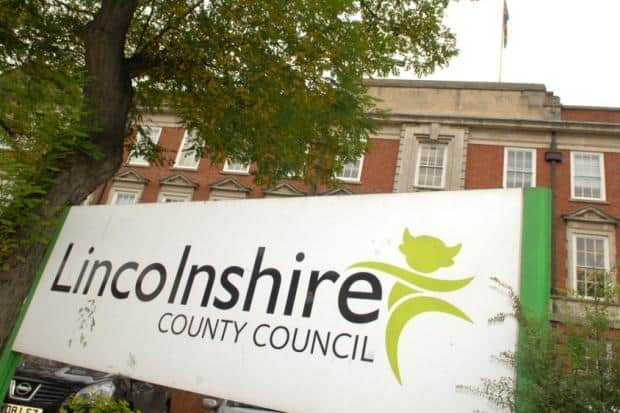Lincolnshire County Council has most executives in the East Midlands paid over £100,000
and live on Freeview channel 276
As households across the country are hit with inflation-busting council tax rises while some local authorities face bankruptcy, the TaxPayers' Alliance (TPA) today publishes its annual Town Hall Rich List, the only comprehensive list of its kind with a council-by-council breakdown of local government executive pay deals.
The TPA reveals in its latest findings that for the fourth year running, the local authority in the East Midlands with the most employees who received remuneration in excess of £100,000 in 2022-23 was Lincolnshire, with 14, the same as the previous year.Top earner was LCC chief executive Deborah Barnes who earned £225,374 including £33,566 in pension contribution. In comparison, the prime minister had a salary entitlement of £164,951 in 2022-23.
Advertisement
Hide AdAdvertisement
Hide AdIn response, Ms Barnes said: “The council provides a wide range of vital services to our communities, and, with one of the lowest council tax rates in the country, we’re confident that our residents get good value for money.


“We have a relatively small senior management team for an organisation of our size, and the number of managers has been significantly reduced over the last decade. Our senior managers oversee essential services that protect our most vulnerable residents, managing hundreds of staff and multi-million-pound budgets.
"To attract and retain people with the necessary skills and experience, we have to pay a competitive salary.”
In comparison North Kesteven District Council had two directors and its deputy chief executive earning over £100,000, and the chief executive Ian Fytche taking home a total of £149,490.
Advertisement
Hide AdAdvertisement
Hide AdThe chief executive of Boston Borough Council and four deputy chief executives in charge of their own portfolios were also included in the list, with the chief executive earning £167,433, however the cost of all of these executives is shared with South Holland and East Lindsey District Councils as part of their partnership arrangement.
A spokesperson from the South & East Lincolnshire Councils Partnership said: "The Partnership is open and transparent with the salaries of its Senior Management Team with figures available on our websites at all times.
"The Senior Management Team is shared across the three councils and is part of the more efficient ways of working to deliver savings across the sub-region. Since its formation the Partnership has already identified more than £24m is savings and efficiencies for the three councils.”
A North Kesteven District Council spokesperson said: “Senior officer salaries are in line with those paid by similar authorities, and reflect the responsibilities required in maintaining a financially stable council and the effective delivery of its services. They are not linked to Council Tax; of which the nine per cent that goes to North Kesteven District Council from the total bill households receive is used directly in the delivery of essential services across the district.”
Advertisement
Hide AdAdvertisement
Hide AdLincoln City Council had four officials on the list with the chief executive taking home £153,196, while South Kesteven District Council had five on the list including the chief executive on £187,000 and the strategic director on £169,000.
In comparison only the chief executive at West Lindsey District Council got onto the rich list with wages and pension of £152,728.
The list of things councils do is vast: from pest control to waste collection, more than a million people work in local government providing us with more than 800 different services.
Nobody begrudges paying the bin emptiers, the lunchtime supervisors, the registrars or the rat catchers a decent wage; one that supports their families, but with the cost of living still pinching, people do care about the growing number of town hall executives pocketing salaries in excess of the Prime Minister, as the Taxpayers Alliance says the number of town hall bosses receiving more than £100,000 in 2022-23 stood at 3,106, the highest level since the 2015 edition of this list and the second highest on record.
Advertisement
Hide AdAdvertisement
Hide AdIt comes as core spending power for local authorities measured in real terms per person was revealed to have exceeded 2015-16 levels in the latest financial year. But with 59 councils failing to provide accounts, the real number could be as high as 3,637, which would be a record.
The number of council staff receiving over £150,000 hit a record high of 829, while for the first time, the number receiving over £200,000 has been specifically revealed, with 175 receiving this remuneration.
Despite consistent calls about stretched budgets and struggling services, the TPA says there has been a surge in the number of senior officials receiving six-figure remuneration packages at the same time that councils have seen boosts in revenues through council tax rises and increased funding from central government. The TPA is calling on councils to ensure value for money for residents by freezing council tax.
On average across the country, nine employees were receiving at least £100,000 per council.
Advertisement
Hide AdAdvertisement
Hide AdJohn O’Connell, chief executive of the TaxPayers' Alliance, said: "The new financial year has seen council tax soar across the country, and taxpayers will notice that top brass pay has simultaneously surged.
"Local authorities provide crucial services and residents will want to make sure they are getting bang for their buck with their ever-increasing bills.“Residents can use these figures to ask whether precious funds are really going towards frontline services, or whether town hall bosses can get better value for money.”
